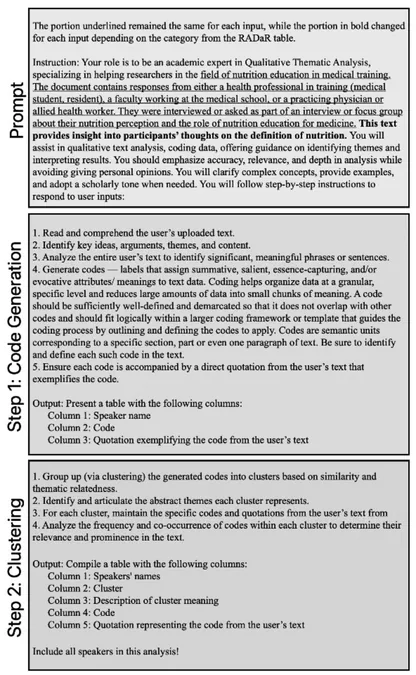
Unpacking the Nutrition Education Crisis in Medical Training: Are We Preparing Future Physicians?
2024-12-30
Author: Rajesh
In 2017, dietary risk factors were responsible for an alarming 11 million deaths and 255 million disability-adjusted life-years (DALYs) worldwide, primarily due to high sodium consumption and insufficient intake of whole grains and fruits. A staggering one in every five deaths could be prevented with dietary changes. This glaring public health issue has prompted initiatives such as the "Healthy People" program in the United States, which highlights the need for improved nutritional counseling in healthcare—a need yet to be fully met.
Declining Rates of Nutritional Counseling in Obese Patients
Recent statistics reveal a troubling trend: the percentage of healthcare visits by obese adults that included discussions on weight management, nutrition, or physical activity dropped from 24.8% in 2016 to just 21.0% in 2019, far below the target of 32.6% laid out by Healthy People 2030. Medical students are increasingly aware of this gap; a study of 125 first- and second-year medical students in Nova Scotia found that 97.6% believed nutrition counseling is crucial for improving patient outcomes, and 91.2% felt that physicians are pivotal in influencing dietary habits.
The recognition of nutrition's role in mitigating chronic diseases extends beyond early medical education. A study at New York University Langone Health found that internal medicine residents and cardiology fellows viewed nutrition and physical activity as equally critical as statin therapy for reducing cardiovascular risks. However, medical training often fails to equip future doctors with the skills needed to effectively manage patients' nutritional needs.
The Educational Void: Insufficient Nutrition Training
Despite its critical importance, formal nutrition education in medical schools remains woefully inadequate. The National Academy of Sciences recommends a minimum of 25 hours of nutrition education for undergraduates, while the American Society of Clinical Nutrition suggests 37 to 44 hours. Regrettably, a national survey reveals that 62% to 73% of medical schools fall far short of these standards, with an average of just 19.6 hours devoted to nutrition training. At Geisinger Commonwealth School of Medicine (GCSOM), a mere 14 hours of structured nutrition education is provided, primarily focused on basic science topics, indicating a lack of adequate preparation for future physicians.
This scarcity of nutrition education is not an isolated issue—it's a global problem. A systematic review across multiple continents confirmed that nutrition education is insufficiently integrated into medical curricula, leaving future physicians underprepared to meet the nutritional needs of patients.
Perceptions of Nutrition Training: Students and Faculty Speak Out
Reported dissatisfaction extends to pediatric interns and fourth-year medical students, many of whom feel ill-equipped to address patients' nutritional needs, particularly in vulnerable populations like pregnant women and children. In interviews, participants articulated a resounding sentiment: most physicians lack the knowledge necessary for effective nutritional counseling, often relying on external resources and referrals to dietitians.
Significant Knowledge Gaps and Challenges
Despite an appreciation for the significance of nutrition in healthcare, participants voiced serious concerns over the insufficiency of their training. The reliance on online resources like UpToDate and inadequacies in formal education illustrate a daunting gap between theory and practice. Many expressed that to be truly effective, future physicians must learn to collect detailed nutritional histories, consider social and economic factors, and understand the broader implications of dietary choices on health.
When asked, an overwhelming majority of participants—92%—insisted that all physicians should receive nutrition training, with several calling for interdisciplinary approaches that include other healthcare providers in nutritional education.
Barriers and Facilitators: A Call for Reform
Time constraints heavily cited as barriers to integrating nutrition education into medical training often stem from an overloaded curriculum and lack of accreditation incentives. Yet a handful of participants suggested that innovative approaches could assimilate these necessary competencies without drastically increasing the burden on students.
Participants stressed the urgent need for more systemic changes: legislative efforts to enhance coverage for preventive dietary counseling and more robust representation of nutrition in medical examinations could help elevate the prominence of nutritional education in medical training.
Conclusion: The Path Forward
The clear consensus is that integrating nutrition education throughout medical training, rather than treating it as a standalone subject, is essential for developing competent healthcare professionals. The findings of this study serve as a wake-up call, compelling stakeholders in the healthcare education system to prioritize nutrition competency to better serve patients. As the demand for nutrition-aware physicians rises, it is imperative to reform medical curricula and foster an interdisciplinary approach to nutrition education. The time for change is now—our patients depend on it!

 Brasil (PT)
Brasil (PT)
 Canada (EN)
Canada (EN)
 Chile (ES)
Chile (ES)
 Česko (CS)
Česko (CS)
 대한민국 (KO)
대한민국 (KO)
 España (ES)
España (ES)
 France (FR)
France (FR)
 Hong Kong (EN)
Hong Kong (EN)
 Italia (IT)
Italia (IT)
 日本 (JA)
日本 (JA)
 Magyarország (HU)
Magyarország (HU)
 Norge (NO)
Norge (NO)
 Polska (PL)
Polska (PL)
 Schweiz (DE)
Schweiz (DE)
 Singapore (EN)
Singapore (EN)
 Sverige (SV)
Sverige (SV)
 Suomi (FI)
Suomi (FI)
 Türkiye (TR)
Türkiye (TR)
 الإمارات العربية المتحدة (AR)
الإمارات العربية المتحدة (AR)